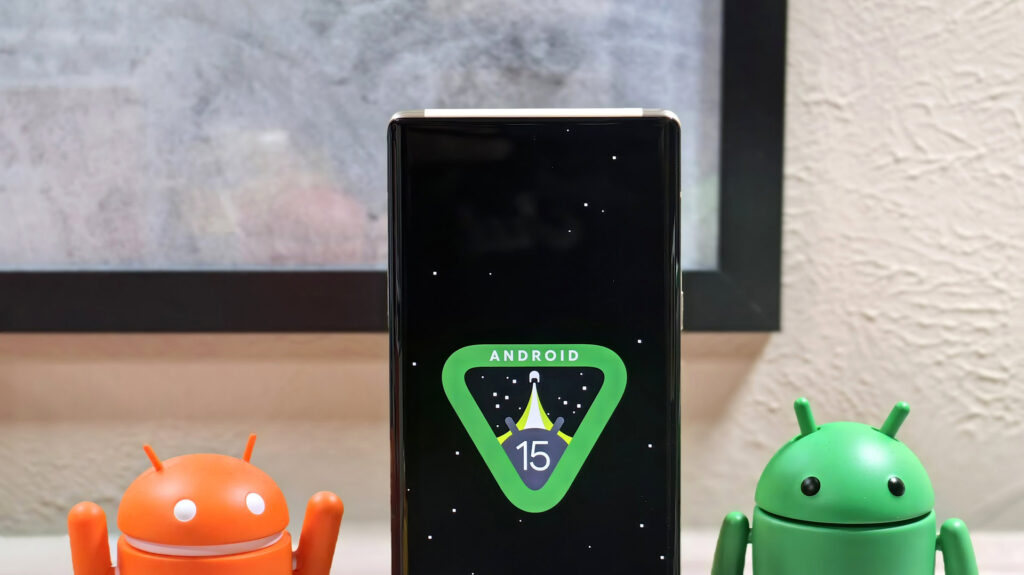Many users in the Android beta program have been waiting impatiently for the release of Android 15 Beta 3.1. This most recent update, which was sent to all compatible devices through over-the-air updates, fixes two major bugs that users have been complaining about since the release of Android 15 Beta 3. It does not, however, fix the slow charging issue that many have been reporting.
One of the most frustrating issues fixed in this update was related to the face unlock feature. In the previous beta version, many users found that the biometric face unlock simply didn’t work, which, while not entirely crippling, was certainly an inconvenience. Users had to resort to using PINs, passwords, or fingerprint unlocks, which disrupted the seamless experience that modern smartphones aim to provide.
With Beta 3.1, this issue has been resolved, restoring the reliability of the face unlock feature. The return of a functional face unlock system enhances the overall usability of the device, allowing users to quickly access their phones without the need for additional steps. This improvement underscores the importance of biometric security in providing both convenience and security to users.
Another critical bug that has been fixed involved the interaction with lockscreen elements. In Beta 3, users often encountered a scenario where the lockscreen would repeatedly prompt them to unlock their phone to interact with widgets or other elements, effectively rendering these features useless. This problem undermined the very purpose of having interactive elements on the lockscreen.
Fortunately, Beta 3.1 has addressed this issue, allowing users to once again benefit from the convenience of lockscreen widgets. The fix ensures that users can interact with notifications, control music playback, and use other widgets directly from the lockscreen without unnecessary interruptions. This enhancement is particularly valuable for users who rely on quick access to information and controls without fully unlocking their devices.
Despite these significant improvements, one major problem remains unresolved: the slow charging bug. This issue has particularly affected Pixel devices, causing them to take an unusually long time to charge. Users have reported on platforms like Reddit that their phones are still not fully charged by the time their wake-up alarms go off in the morning, which is particularly concerning for those who rely on their phones being fully charged for the day ahead.
Google’s adaptive charging solution, which is supposed to manage the charging process to finish just before the user’s alarm, seems to be malfunctioning. Unfortunately, there is no official word yet on when this bug will be addressed, though it is hoped that a fix will come in a subsequent update. The persistent slow charging issue impacts daily usability and battery health, making it a priority for Google to address in upcoming patches.
The Android 15 Beta 3.1 update also claims to fix various other issues related to system stability, connectivity, and audio quality, though the specifics of these fixes have not been detailed. Users experiencing any form of instability or minor bugs in these areas might find some relief with this update, even if their particular issues weren’t as prominent as the face unlock or lockscreen interaction problems. Improving system stability and connectivity ensures a smoother user experience, reducing the likelihood of crashes and connectivity drops. Enhancements to audio quality also contribute to a more immersive and enjoyable multimedia experience.
For those interested in testing out the new beta, installing Android 15 on a supported phone is a relatively straightforward process. The beta program is designed to provide users with an early look at new features and improvements, though it also means dealing with the occasional bug or performance issue. However, the feedback from beta testers is crucial for refining the final release, making it a valuable experience for both Google and the users involved. Participating in the beta program allows users to influence the development process by reporting bugs and suggesting improvements, ultimately contributing to a more polished and user-friendly final release.
In the context of these updates, it’s worth mentioning the upcoming Google Pixel 8a. This device, poised to be an affordable yet powerful option in Google’s smartphone lineup, promises not only the latest updates but also a commitment to long-term software support. With updates guaranteed for the next seven years, the Pixel 8a is shaping up to be an excellent choice for users looking to balance cost and functionality.
Official renders of the device showcase its sleek design, emphasizing Google’s continued focus on blending aesthetics with performance. The Pixel 8a is expected to offer a robust set of features, including advanced camera capabilities, a high-resolution display, and efficient performance, making it a competitive option in the mid-range smartphone market.
The Android 15 Beta 3.1 update brings welcome fixes to significant issues that have plagued users, particularly with face unlock and lockscreen interaction. However, the persistent slow charging bug remains a concern that Google needs to address in future updates. As the beta program progresses, users can look forward to more improvements and refinements, contributing to a smoother and more reliable final release of Android 15.
In order to provide a more sophisticated and fulfilling user experience, software is constantly evolving, and the upcoming Google Pixel 8a, which promises long-term support and a robust feature set, is a compelling option for those in the market for a new device.
If you like the article please follow on THE UBJ.
